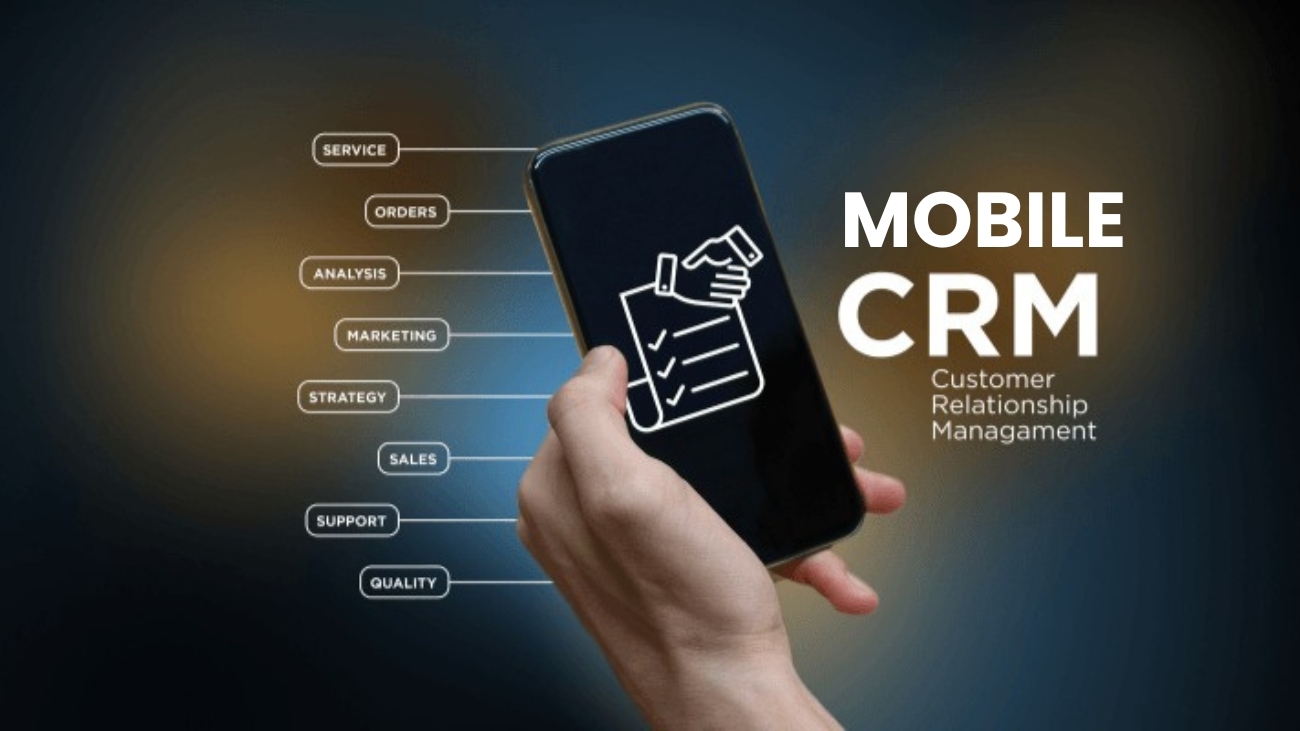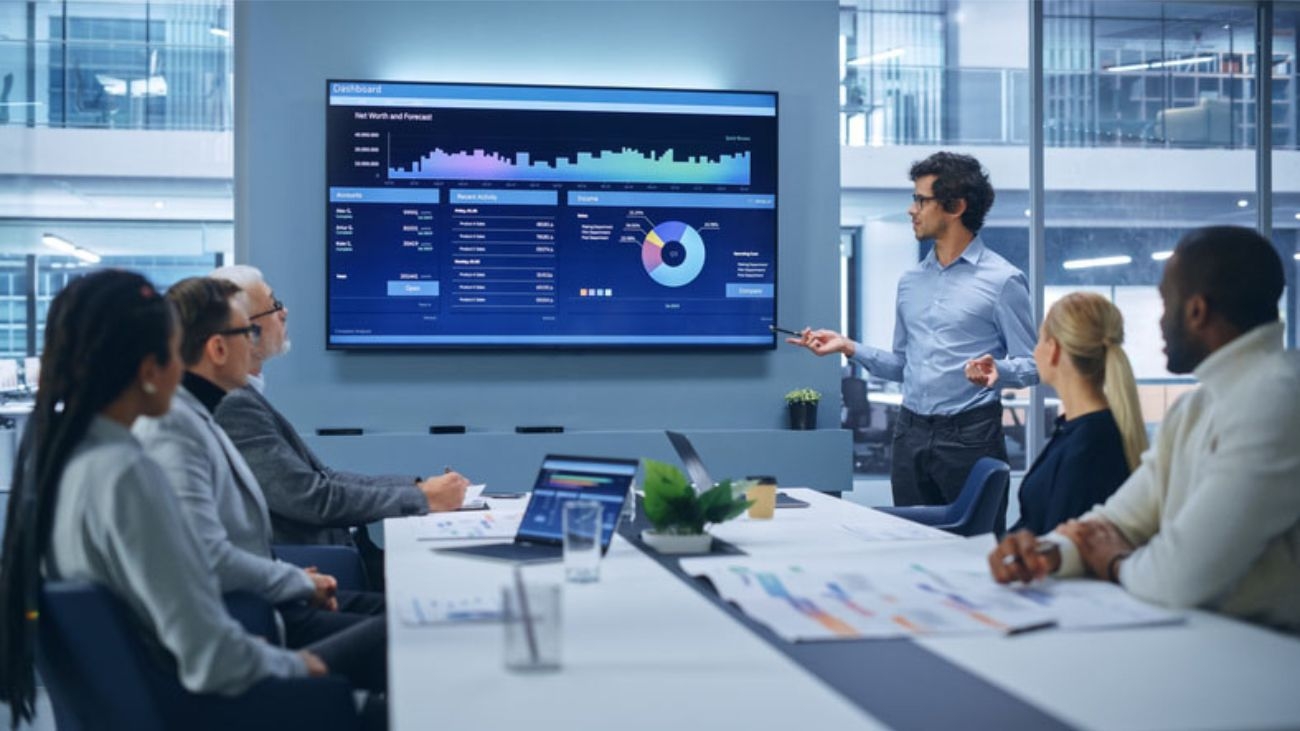Mobile CRM is one of those in the digital age, businesses need tools that offer flexibility, efficiency, and scalability. Customer Relationship Management software. This allows sales teams, customer service representatives, and other business professionals to manage customer interactions and data on the go. This accessibility can significantly enhance your business operations, providing a competitive edge in today’s fast-paced market.
Getting Right Mobile CRM for Your Business:
When selecting a Mobile CRM app for your business, consider the following factors:
- User-Friendliness: The app should be easy to use, with an intuitive interface that your team can quickly adapt to.
- Customization: Look for an app that allows you to customize features and workflows to match your business processes.
- Integration: Ensure the Mobile CRM app integrates seamlessly with other tools and software you use.
- Scalability: Choose an app that can grow with your business, offering advanced features and capabilities as your needs evolve.
- Support: Opt for a provider that offers excellent customer support, including training resources and troubleshooting assistance.
Benefits of Using Mobile CRM:
Using Mobile CRM apps can bring numerous benefits to your business, such as:
- Increased Productivity: Mobile CRM apps allow your team to access and update information from anywhere, reducing downtime and increasing productivity.
- Improved Customer Service: With instant access to customer data, your team can provide better and faster service.
- Enhanced Collaboration: These apps facilitate better communication and collaboration among team members, regardless of their location.
- Real-Time Insights: Access to real-time data helps you make informed decisions quickly, keeping your business agile.
- Flexibility: CRM apps offer the flexibility to work from anywhere, which is especially beneficial in today’s remote work environment.
Here, we explore some of the top Mobile CRM apps that can take your business to the next level.
Salesforce Mobile:
Salesforce Mobile is a leading Mobile CRM app known for its robust features and versatility. It allows you to access your Salesforce data from anywhere, providing real-time insights into your business operations. With Salesforce Mobile, you can track sales, manage customer relationships, and access crucial data even when you’re offline. The app’s intuitive interface makes it easy to navigate, and its powerful analytics tools help you make informed business decisions.
One of leading software development company Apps Cre8ve excels in crafting custom CRM solutions, revolutionizing how you manage customer relationships and drive business efficiency
HubSpot CRM:
HubSpot CRM offers a mobile app that is perfect for businesses looking to streamline their customer relationship management processes. This free Mobile CRM app is user-friendly and integrates seamlessly with HubSpot’s marketing, sales, and service tools. With HubSpot CRM, you can manage your contacts, track deals, and monitor customer interactions on the go. The app also provides notifications for important activities, ensuring you never miss a critical update.
Zoho CRM:
Zoho CRM’s mobile app is designed to help businesses manage their customer relationships efficiently. It offers features such as lead management, sales forecasting, and workflow automation. The app allows you to access customer data, track sales activities, and collaborate with your team from anywhere. Zoho CRM also integrates with various third-party applications, making it a versatile choice for businesses of all sizes.
Pipedrive:
Pipedrive is a Mobile CRM app that focuses on sales pipeline management. It provides a visual interface that makes it easy to track deals and sales activities. Pipedrive’s mobile app offers features such as deal tracking, activity reminders, and contact management. It also integrates with other tools you may already be using, such as Google Calendar and email. This integration helps you stay organized and keep your sales process on track.
Freshsales Mobile CRM:
Freshsales by Freshworks is a Mobile CRM app that combines powerful sales force automation with an easy-to-use interface. It offers features like lead scoring, email tracking, and in-app phone calls. Freshsales allows you to manage your sales pipeline, track customer interactions, and close deals from anywhere like app development company in Florida is quite capable of doing this also. The app’s AI-based insights help you prioritize leads and make data-driven decisions.
Conclusion:
Mobile CRM apps are essential tools for modern businesses, offering flexibility, efficiency, and enhanced customer relationship management. By leveraging the capabilities of top apps like Salesforce Mobile, HubSpot CRM, Zoho CRM, Pipedrive, and Freshsales, you can streamline your operations, improve customer satisfaction, and drive business growth. Choose the right CRM app that fits your business needs and start experiencing the benefits today.
For more tech articles and posts, visit FinBiz Tech for the latest in technology content.
FAQs:
Hey, Siri what is Mobile CRM?
This is a customer relationship management system accessible via mobile devices, allowing users to manage customer interactions on the go.
Why is CRM important for businesses?
CRM enhances business efficiency by providing real-time access to customer data, improving responsiveness, and facilitating remote work.
Can CRM apps work offline?
Many CRM apps, such as Salesforce Mobile and Zoho CRM, offer offline access, syncing data when connectivity is restored.
What features should I look for in a CRM?
Key features include real-time data access, contact management, sales tracking, workflow automation, and integration with other business tools.
Is CRM apps secure?
Most CRM apps offer robust security measures, including data encryption, secure access controls, and regular security updates.





